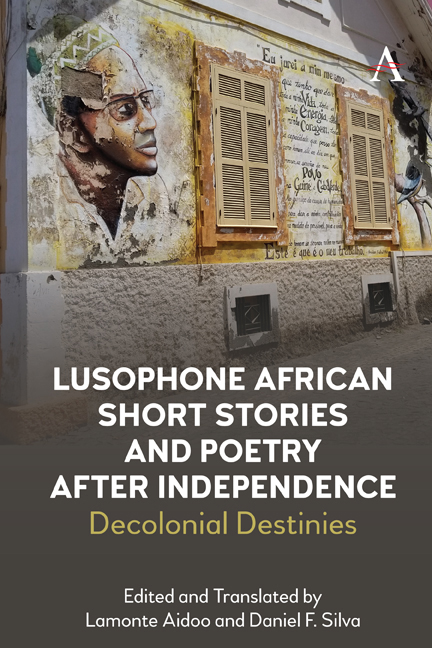Chapter 4 - Amélia da Lomba
Published online by Cambridge University Press: 23 February 2022
Summary
Introduction
Maria Amélia Gomes Barros da Lomba do Amaral, best known as Amélia da Lomba, was born in 1961 in the Angolan province of Cabinda. After completing her secondary education, she moved to Moscow to pursue her university studies, earning a bachelor's degree in psychology. Upon returning to Angola, she began working as a journalist in Cabinda for the Provincial Emissary of Cabinda, prior to settling in the capital, Luanda, where she reported for the Angolan National Radio and the daily newspaper, Journal of Angola.
Amélia da Lomba is considered by many literary critics to be one of the foremost poetic voices in postindependence Angola, as well as one of the most prolific with eight published books of poetry: Ânsia, poesia (Anxiety, 1995); Sacrossanto refúgio (Sacrosanct Refuge, 1996); Espigas do Sahel (Spikes of Sahel, 2004); Noites ditas à chuva (Nights Told in the Rain, 2005); Aos teus pés, quanto baloiça o vento (At Your Feet, How the Wind Swings, 2006); Sinal de mãe nas estrelas (A Mother's Sign in the Stars, 2007); Nsinga, o mar no signo do laço (Nsinga, the Sea in the Knot's Zodiac, 2011); and Senhor, há poetas no telhado (Lord, There Are Poets on the Roof, 2015). Beyond her own books, her poetry has featured prominently in over 10 anthologies published in Angola, Brazil, Portugal, France, Spain, and Sweden. She has also received numerous awards and prizes for her poetry in Angola, Cabo Verde, and Portugal.
Noteworthy literary scholar of Lusophone African literatures, Luís Kandjimbo, has posited Lomba, alongside Ana Paula Tavares and Ana de Santana, as a key figure in what he has coined “the generation of uncertainties” in reference to poets that have emerged in the decades after independence and following the generation whose works traversed the anticolonial struggle and transition to nationhood. Her literary contribution to this particular generation and period in Angolan literature resides in her intervention pertaining to empire. As evidenced by her selected works below, Lomba's poetry targets the philosophical and epistemological foundations of European imperial expansion and the ongoing projects of empire, most notably in “In the Millesimal of Time” and “Time's Inversion of Value.”
- Type
- Chapter
- Information
- Lusophone African Short Stories and Poetry after IndependenceDecolonial Destinies, pp. 71 - 78Publisher: Anthem PressPrint publication year: 2021



